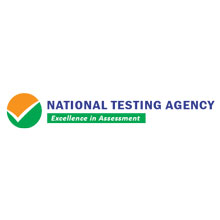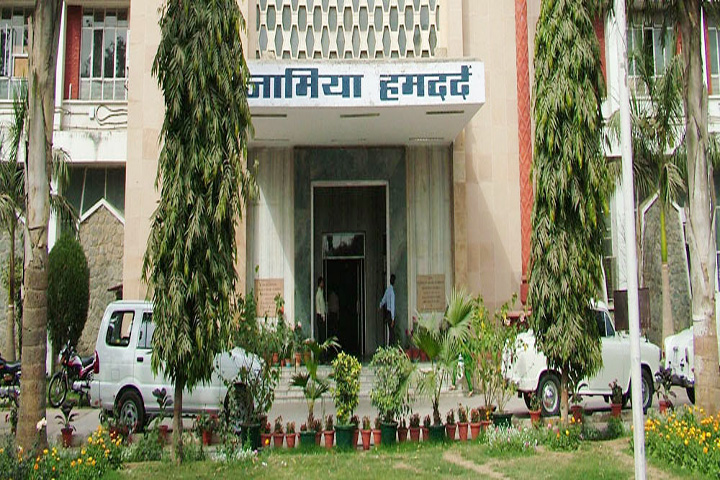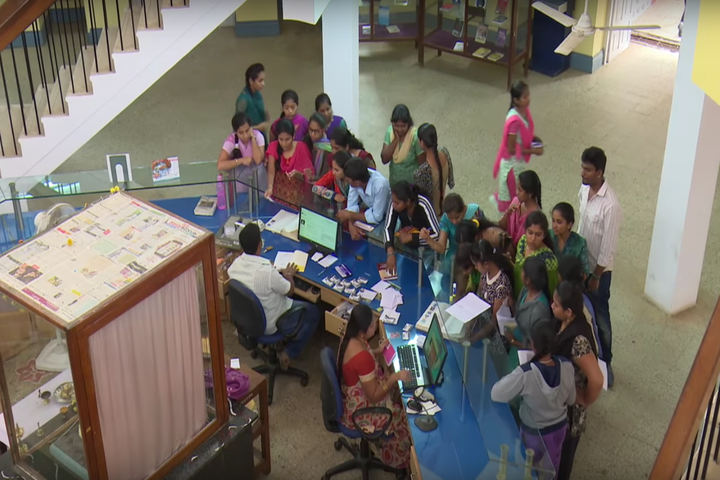What is Insurance
Students who are interested in a challenging and competitive profession in finance can specialise in insurance. Insurance is a vast field, and therefore, there are several courses that one can undergo to make a fruitful career in Insurance. One can decide among these courses which one suits their criteria the most. Financial losses can be avoided with insurance. It is a contract between an insurer (the provider of insurance) and the insured (the person who purchases the insurance policy) that provides financial compensation for losses. It is available to both individuals and businesses.
While Insurance is a professional course and can be pursued in terms of actuarial sciences, students can also opt for management courses in Insurance. At the undergraduate level, courses in insurance management include BBA, BA, and B.Com. Students have the option of taking an MBA, MA, or M.Com. for the Masters level. In Insurance Administration. In addition, PhD programs in insurance and risk management are available.
Eligibility Criteria (UG & PG) of Insurance
UG Eligibility
Applicants must have qualified 10+2 with a minimum of 60 per cent marks from a recognised board.
The candidate must have their primary subjects as commerce/maths in 10+2.
PG Eligibility
Applicants must hold a bachelor’s degree in any stream from a recognised university.
A minimum aggregate of 55 per cent marks must be obtained.
PhD eligibility
Applicants must have passed a PG course with an aggregate of 55 per cent marks.
An applicant with an OBC/SC/ST certificate requires a minimum aggregate of 50 per cent
Candidates can apply for JRF till the age of 30.
Entrance Exams for Insurance
The admission process differs from college to college, but the majority of them have entrance exams for the students who seek admission in their colleges. Some of the common entrance exams are:
Undergraduate Level –
DU JAT – This is a national level exam conducted by NTA for Undergraduate courses for Business, Finance, Economics and Commerce. It is conducted through online mode in September.
| DU JAT Eligibility Criteria | DU JAT Application Form | DU JAT Cutoff |
NPAT – The entrance exam is conducted to offer admission to Undergraduate degree in NMIMS University. This exam is conducted through online mode in June.
BUMAT - BUMAT stands for Bharati Vidyapeeth Undergraduate Management Aptitude Test. It is a national-level entrance exam, conducted by Bharati Vidya Deemed to be University for undergraduate management courses. It is conducted through offline mode in August.
| BUMAT Eligibility Criteria | BUMAT Application Form | BUMAT Result |
Postgraduate Level-
BHU PET– This exam is conducted by Banaras Hindu University for Post-graduation courses in various streams. The exam is conducted through online mode in August. It is held once in a year. Browse more about BHU PET.
CMAT– CMAT stands for common management admission test . This is a national level entrance exam, conducted for all the management courses by NTA. The entrance exams are mostly held in January. Check more details about CMAT. This exam is valid for JNU, and all the AICTE approved colleges and universities.
XAT (Xavier’s Aptitude Test) – This is a national level exam, conducted in online mode in January. Browse more about XAT.
PhD Level-
UGC NET – Conducted by NTA, UGC NET is a national level entrance exam for Junior Research Fellowship or Assistant professor. It is conducted in September – November.
| UGC NET Eligibility Criteria | UGC NET Application Form |
| UGC NET Answer Key | UGC NET Result |
| UGC NET Cut off | UGC NET Question Papers |
College Predictors VIEW ALL
Scope of Insurance in India and Abroad
The Insurance Industry expands fifteen to twenty per cent annually. Due to its vast dimension, banking and Insurance offer vast opportunities for a professional to get a handsome paying job and job security. This is an ever-growing industry that presents lucrative career opportunities. It contributes about seven per cent in the country's economy as of now, which could increase immensely in the near future as 80 per cent of the population doesn’t have any life insurance policy.
This indicates that there is scope and demand for expansion. And thus it will create an enormous amount of jobs. Individuals graduating in insurance can work in banking sectors, insurance companies, in auditing, finance, accounting and government undertaking agencies.
Course Fees Insurance
| Minimum Fees | Maximum Fees | |||
|---|---|---|---|---|
| Private | Government | Private | Government | |
| UG | ||||
| PG | ||||
| DIPLOMA | ||||
Course Subjects
The syllabus for insurance management courses may vary slightly due to more specialisations. As a result, a general outline is provided below:
Year I | |
Principles and practice banking 1 | Principles and practice banking 2 |
Financial Accounting 1 | Financial Accounting 2 |
Principles of Insurance Physical Education | Insurance Law and practice |
Business Management | Environmental Studies |
value education | Financial Mathematics |
English 2 | |
Entrepreneurship Management | |
Year II | |
Legal Regulatory Aspects of Banking | |
Workshop of Numerical Skills | Service and Marketing |
Central Banking | E-Commerce and E-Business |
Business Economics | Workshop on Reasoning Skill |
Business Ethics | Institutional Training |
Year III | |
Business Environment | International business |
Financial Statistics | Business Communication |
Cost Accounting | Management Accounting |
Income Tax and Auditing | Project |
Careers in Insurance
With increasing competition in financial markets, insurance and risk management. Professionals are highly valued in the industry. There are various career options. Students specialising in insurance can work for government agencies, non-profit organisations and insurance and risk management firms.
Other than insurance agencies, a student expertise in insurance can work in various domains such as banking, auditing & finance, and underwriting.
Popular Online Finance Courses and Certifications
Upcoming trends
In a fast moving world, none of the sectors can take the risk of being slow, steady and tedious. With the digitalisation in the world insurance industry is drifting towards advanced technology and fast pace.
Some of the major upcoming trends are-
Tailor-made Service- In the past, insurers sold the same product to the general public. With the development of insurance plans and a wider understanding of them, it is now necessary to tailor policies to each individual.
Use of Artificial Intelligence – There was a time when buying an insurance policy was a nerve-wracking process. The tedious pace, dozens of paperwork and brokerage was not just a waste of time but also a waste of money. The adaptation of artificial intelligence will make the process convenient and cost-effective.
Use of mobile apps – Many insurance providers have already launched their mobile apps, and almost 70 per cent of their consumers are more satisfied than before. The use of the mobile app has made transparency between the policyholder and insurer, declining the probability of fraud.
Use of sensor – Soon, vehicle insurance companies will use a sensor in the car to help them extend coverage and reduce the premium cost. It will make policy better and cheaper.
Students also liked
Job Profiles and Top Recruiters
Job Profile | Description |
Insurance Claim Specialist | The insurance claims specialist’s job is to review insurance claims submitted by the customers. The job profile also assesses unusual claims and whether they can be covered under the scheme. |
Insurance Claim Adjuster | The job of an insurance claim adjuster is to analyse how much damage is to be paid to the customers who have incurred a loss. |
The insurance agent’s job is to identify, contact and sell an insurance policy to customers. They get a fixed amount as brokerage on each insurance sold. | |
Insurance Account Manager | The Insurance Account Manager looks after the accounts for a firm or insurance company. His or her target is to achieve high sales and feed into the accounts database. He may also supervise the work of account executives. He or she build relationships with new clients and help them to design plans that lead to profit. |
Top Recruiters in Insurance Sector
Syndicate Bank | Bajaj Allianz Life Insurance Co. Ltd. |
Axis Bank | HDFC Bank |
Chadha & Co. | Muthoot Finance |
Tata AIA Life | Royal Sundaram |
ICICI Lombard | IFFCO Tokyo General Insurance Company Limited |
Om Kotak Mahindra | ING Vysya Life |
Max New York Life | SBI Life Insurance |
Life Insurance Corporation of India (LIC) | HDFC Standard Life-Insurance Co. |
ICICI Prudential | Birla Sun-Life |
General Insurance Corporation (GIC) | Reliance |
Average Salary
A Banking & Insurance professional can easily bag a package of Rs. three lakhs to five lakhs p.a. (approx.). Initially, but after gaining experience and specialisation, they can earn handsome salary packages.
Job Profile | Average salary |
Insurance Claim Specialist | Rs. 3-5 Lakhs p.a. (approx.) |
Insurance Claim Adjuster | Rs. 4-6 Lakhs p.a. (approx.) |
Insurance Agent | Rs. 2-4 Lakhs p.a. (approx.) |
Insurance Account manager | Rs. 5-7 Lakhs p.a. (approx.) |
Required Skillset for Insurance
To flourish in an insurance industry, it is of prime importance to have academic brilliance paired up with common skills.
Some of the skills relevant to this industry are-
Mathematics and computer skills: Insurance job involves finance and a lot of calculation. A professional should be skilled to manage details without errors.
Communication Skills: Good communication is very important in this occupation as you have to deal with a customer that might not be so aware of the finance terms and until you have a command over communication, you cannot sell your policy.
Active listening: Active listening results in meaningful communication which serve as a strong factor in the development of client relationships. If you do not listen to the client, you wouldn’t be able to answer their query.
Monitoring and evaluation skills: Evaluation of your work is very important because you can't afford errors in this occupation, to deal with errors monitoring and evaluation of your work is constructive.
Adaptability: The trend around the world is changing rapidly, and unless one can adapt to the changing scenario and further their skill, it would be tough to survive in such competitive field.
Course Curriculum for Insurance
The course curriculum is designed to provide theoretical knowledge in the field of banking and insurance as well as exposure to the market reforms and all the finance policies. The course deals with banking, finance, auditing, Insurance and accounting. The structure of the course helps to make a professional who is well-suited to work for sectors other than insurance as well. It’s a practical-oriented field which enables an individual to have a better knowledge of real work banking and insurance problems.
The Bachelor of Business and Insurance is a three years long undergraduate course that is divided into 6 semesters. Other than professional skills and knowledge, the curriculum boosts an individual’s soft skills such as confidence and communication skills.
It deals with various kinds of insurance such as
Life insurance
Health insurance
Personal insurance
Commercial insurance
Auto- Industry insurance
Insurance law and risk management
Insurance Colleges by States
The colleges that offer insurance courses in a few states are listed in the table below:
Insurance Colleges by Location
The colleges that offer insurance courses in a few locations are listed in the table below:
| Insurance Colleges in New Delhi | Insurance Colleges in Bangalore |
| Insurance Colleges in Pune | Insurance Colleges in Noida |
MBA Colleges By Location
The MBA colleges that offer insurance courses in a few states are listed in the table below:
Popular Insurance Entrance Exams in India
Frequently Asked Questions (FAQs)
Question: Can a student major in insurance attempt the Indian Economic Service Exam?
Answer :
Yes, the eligibility criteria for Indian Economic Service is PG in economics or economics applied for courses. Therefore, if you’ve attained the age of 21, you can apply for UPSC IES.
Question: What are the entrance exams that graduates from BBI are eligible to appear?
Question: Can a student work for government organisations after graduating from Insurance?
Answer :
Yes, a student who has graduated as a BBI can work for both government bank and government insurance agencies provided that they clear the entrance exam for the same.
Question: What is the best course after graduating from BBI?
Answer :
After majoring in insurance, it is recommended to work as an intern to broaden your horizon and get a better knowledge about the work environment for an Insurer. Otherwise, one can pursue PG courses such as-
- MBA (Master in Business administration)
- PBI (Professional in Banking and Insurance)
- MBFI (Master in Banking, Finance, and Insurance)
- MFC (Master of Finance and Control)
- CA (Chartered Accountancy)
Question: What are the top five colleges in India for BBI?
Answer :
The top five colleges in India for Bachelor of Banking and Insurance are-
2. Rizvi College of Art Science and Commerce, Mumbai
3. Deen Dayal Upadhyay College, Delhi
4. Maharshi Dayanand College of Art, Science, and Commerce, Mumbai
Questions related to Insurance
what is commercial insurance ? how can i do commercial insurance course ? suggest me some best insurance courses ?
Commercial insurance protects businesses from financial losses arising from various unforeseen events. It's distinct from personal insurance you might have for your car or home.C ommercial insurance provides peace of mind and financial stability for businesses. It helps ensure they can recover from unforeseen events without facing crippling financial burdens.
- Organizations like The Institutes (formerly IIII) and the National Alliance for Insurance Education & Research (NAIER) offer online and in-person courses leading to certifications like the Associate in Commercial Insurance (ACI) or Certified Insurance Counselor (CIC).
- Websites like Udemy, Coursera, and edX offer various insurance-related courses, including those focused on commercial insurance.
- Some insurance companies provide training programs for brokers, agents, and underwriters.
Question : Which of the following is not a function of the Securities and Exchange Board of India (SEBI)?
Option 1: Regulating the stock market
Option 2: Regulating the mutual fund industry
Option 3: Regulating the insurance industry
Option 4: Protecting the interests of investors
Correct Answer: Regulating the insurance industry
Solution : The answer is (c) Regulating the insurance industry.
SEBI is the regulatory body for the securities market in India. It does not regulate the insurance industry. The insurance industry is regulated by the Insurance Regulatory and Development Authority of India (IRDA).
Question : Sun pharma Ltd., reported Net Profit after Tax of Rs. 6,10,000 for the year ended 31 st March, 2020. The relevant extract from Balance Sheet as at 31 st March, 2020 is:
| Particulars | 31st march, 2020(Rs) | 31st march, 2019(Rs) |
| Inventories | 1,15,000 | 1,25,000 |
| Prepaid Expenses | 20,000 | 6,000 |
| Trade Payables | 1,10,000 | 80,000 |
| Provision for Tax | 20,000 | 15,000 |
Depreciation charged on Plant and Machinery Rs. 55,000, tax provided during the year Rs 15,000 and insurance claim received Rs. 50,000, gain (profit) on sale of investment Rs. 20,000 appeared in the Statement of Profit and Loss for the year ended 31st March, 2020.
Cash Flow from Operating Activities are ____________.
Option 1: Rs 6,36,000
Option 2: Rs 6,66,000
Option 3: Rs 6,96,000
Option 4: Rs 6,86,000
Correct Answer: Rs 6,86,000
Solution : Answer = Rs 6,86,000
| Provision for tax a/c | |||
| To Cash(paid) | 1,000 | By Bal b/d | 15,000 |
| To bal c/d | 20,000 | By tax provided | 15,000 |
| 30,000 | 30,000 | ||
| N.P After charging Tax and Extraordinary items | 6,10,000 |
| (+) Tax charged | 15,000 |
| (-) Insurance claim received | (50,000) |
| NP Before tax and Extraordinary items | 5,75,000 |
| Cash flow from operating activities | |
| NP before tax | 5,75,000 |
| (+) Dep | 55,000 |
| (-) Profit on sale of fixed asset | (20,000) |
| op. Profit Before the Change in Working Capital | 6,10,000 |
| (+)Decrease in CA/ Increase in CL | |
| Inventories=10,000 | |
| Tax payable=30,000 | 40,000 |
| (-)Increase in CA/ Decrease in CL(Prepaid expenses) | (14,000) |
| (+)Insurance claim received | 50,000 |
| Operating profit before a change in working capital | 6,86,000 |
Hence, the correct option is 4.
Question : Which among the following was set up in 1956 by the Indian Government by nationalising all the existing private sector life insurance companies?
Option 1: United India Insurance Company Limited
Option 2: General Insurance Corporation of India
Option 3: New India Assurance Company Limited
Option 4: Life Insurance Corporation of India
Correct Answer: Life Insurance Corporation of India
Solution : The correct option is Life Insurance Corporation of India.
The Government of India nationalised the private life insurance companies already in operation, creating the Life Insurance Corporation of India (LIC) in 1956. The action, which was a component of the banking sector's nationalisation agenda, resulted in the establishment of a state-owned monopoly in India's life insurance market.
Question : Medical Insurance Scheme for State Employees and Pensioners (abbr. MEDISEP) is a unique and comprehensive social insurance scheme. This scheme was implemented by which state government?
Option 1: Karnataka
Option 2: Chhattisgarh
Option 3: Kerala
Option 4: Rajasthan
Correct Answer: Kerala
Solution : The correct answer is Kerala.
All active and retired employees of the Kerala State Government and the Kerala High Court currently covered by the Kerala Government Servants Medical Attendant Rules [1960] are to receive full medical insurance coverage under the MEDISEP scheme.













 Answer later
Answer later










